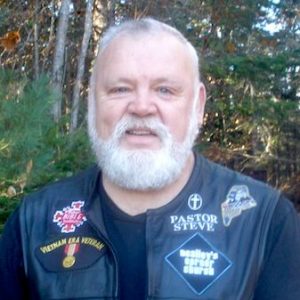Paying Our Respects
By Pastor Steve Nute
 We left the Missionary embassy and got in Ephraim’s blue Peugeot wagon, and went to pay our respects to the family of his newly departed uncle. We figured that, like the States, we’d go and view a body, make some sympathetic noises and be on our way. Adventure number one in Awka was to show us the marked difference in funereal practices between their culture and ours.
After a brief visit to the compound of “senior uncle”, we went to the hospital to aid in picking up the body.
We left the Missionary embassy and got in Ephraim’s blue Peugeot wagon, and went to pay our respects to the family of his newly departed uncle. We figured that, like the States, we’d go and view a body, make some sympathetic noises and be on our way. Adventure number one in Awka was to show us the marked difference in funereal practices between their culture and ours.
After a brief visit to the compound of “senior uncle”, we went to the hospital to aid in picking up the body.
All during the journey the ambulance would sound its klaxon horn periodically as the funeral procession wound through the streets. We followed and observed as uncle’s body was carried from the vehicle to the raised dais on which it was to be displayed in the center of the living room of his house. We then all filed past and paid our respects then took a seat, one of nearly 200 available, and tried to look as if we belonged.
The position and respect accorded to Ephraim was becoming increasingly evident as one of great esteem. We, as his guests, were to enjoy the same kind of treatment throughout our stay.
During the funeral and all night long, a portable P.A. system blared out loud music, interrupted only occasionally by announcements that the family wanted aired. This visit time soon ended for us, but the family and circle of relatives kept a watchful vigil throughout the long night.
“Tomorrow we attend the funeral,” Ephraim informed us after our several hour vigil ended. And sure enough, at 8:00 a.m. we once more presented ourselves at the grieving widow’s compound for the duration of the funeral proceedings.
“Numbah five zero three,” the song director announced, and the voices of 200 impromptu choir members swelled with words of hymn after hymn. Then a eulogy was read about “our dad” and another round of songs was sung.
During the time all this was taking place, a space of several hours, a group of hardworking men was battling the packed soil of the compound to carve a final resting place for “senior uncle.”
Now we lined up behind the ambulance and marched back to the compound for burial.
Another procession, more songs and uncle was laid to rest and we soon returned to the missionary embassy with the same idea in mind.
The widow, we later discovered, has to sit in the same chair in a corner of the house for the next 30 days. She is also required to wear the same dress for one year after the death. The family takes care of her household duties for this month while she mourns.
Back at the Embassy, I paused to make some notes in my journal, and then stretched out for a brief nap to get ready for whatever might come next.
